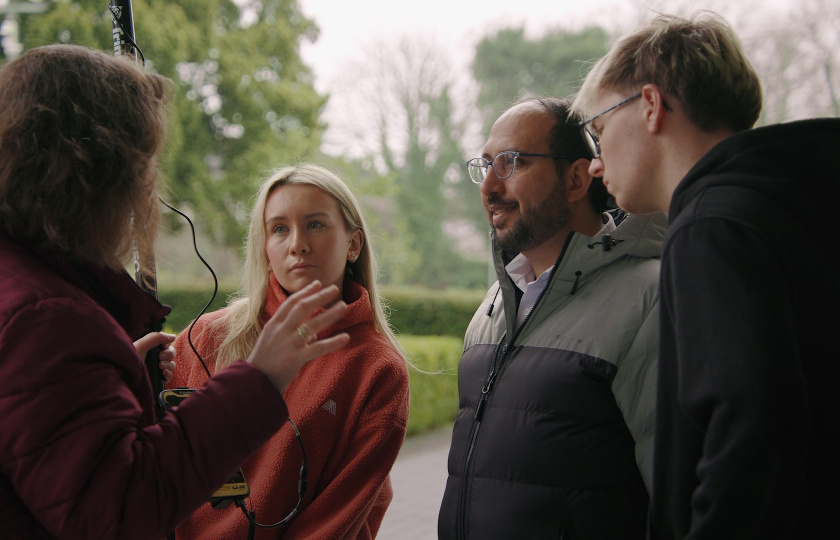MA in Climate, Justice & Sustainability
Available: Full-time/Part-time
NFQ Level: 9*
Duration: 1 yr FT/2 yrs PT
Location: MIC Limerick/online
Delivery Mode:
Face-to-face and/or online
Assessment:
Theoretical essays, technical projects, oral presentations, consultancy reports, research proposals, and dissertation.
- Programme Overview
- Programme Content
- Entry Requirements
- How to Apply
- Ask a Question
Programme Overview
The MA in Climate, Justice and Sustainability tackles the most pressing global issue of our time – how to manage human exploitation of our natural environment sustainably, and fairly. This is a unique programme, involving a collaboration between MIC’s Departments of Geography and Philosophy, covering fundamental issues such as environmental ethics and climate justice, as well as more practical topics like social and environmental sustainability.
Key Features
Longer term thinking and new approaches to development and prosperity are urgently required. Persistent and worsening ecological crises present fundamental questions, including the need to think about challenges to prosperity as well as justice and rights issues, reversals of development gains and resulting conflicts. The programme draws on MIC’s established strengths in the Faculty of Arts, combining expertise from across the faculty to deliver a focused Master of Arts programme in Climate, Justice and Sustainability. The Department of Geography has established teaching and research expertise in Sustainability, Just Transitions and Political Ecology. The Department of Philosophy has a growing international reputation in Environmental Ethics, Sustainability Citizenship and Intergenerational Justice. In partnership, these Departments will provide a unique offering which targets a growing and urgent academic need for graduates of technical, theoretical and practical proficiency, equipped with the necessary skills to address our most profound challenges as a global community.
Click here to download the programme brochure.
You may also be interested in the MA/M Sc in Environment, Society & Culture

Educational aim
This unique programme will equip graduates with a broad range of skills and expertise across the environmental domain, integrating perspectives from both Geography and Philosophy disciplines. At its core, the programme will embed a recognition of the interrelationships between the myriad socio-cultural and biophysical factors driving global socio-ecological crises; in the process, a deep understanding of the role of justice in understanding the causes of, and importantly, solutions to, our present ecological crises will be developed. The programme will take a deliberate transdisciplinary framing, addressing key questions about global prosperity, fairness and justice, the roles of science and knowledge in sustainability as well as critical interrogations of the inter-linked relationships between ecology and culture, environmental justice, and prosperity and economic growth. Graduates will be equipped to develop their professional careers nationally and internationally in the growing sustainability sector.
Professional Skills
There are important environmental, and ethical, reasons to study this programme, but there are also strong professional reasons. This is a busy and growing employment sector, and this programme enhances provides both subject-related and transferable skills that are sought after by employers. To ensure our students are ready for the world of work, the programme includes a novel Environmental Consultancy module, where student groups undertake real-world projects commissioned by external organisations.
Career Opportunities
The programme will equip graduates with broad-based career opportunities, across diverse areas of environmental advocacy and management, and social justice; including sustainability appraisal, corporate social responsibility (CSR), environmental, social, and governance (ESG), education, research, roles in international and domestic non-governmental organisations, environmental management, environmental consultancies (plus legal, planning and management consultancies), government departments and agencies at both local and national levels.
A survey of Irish employment websites in September 2022 using the keywords ‘sustainability’ ‘climate’ and ‘justice’ revealed a broad range of employment opportunities, including roles such as:
- Sustainability Policy Analyst
- Sustainability Data Analyst
- Head of Sustainability
- Sustainability Officer
- Sustainability Manager
- Sustainability and Net Zero Consultant
- Junior Environmental Consultant
- Environmental, Social, and Governance (ESG) Manager
- Head of Decarbonisation
- Community Engagement Officer (sustainability)
- International Development Officer
- Campaign Manager (conservation)
- Carbon EIA Consultant
- Carbon and Climate Impact Consultant
- Director, Climate Resilience
- Carbon Reduction Integration Consultant
NFQ Levels
*Graduate Certificates are Level 9 Minor Awards, Graduate Diplomas and Masters are Level 9 Major Awards and PhDs are Level 10 Major Awards on the National Framework of Qualifications (NFQ), awarded by the University of Limerick.
- Programme Overview
- Programme Content
- Entry Requirements
- How to Apply
- Ask a Question



